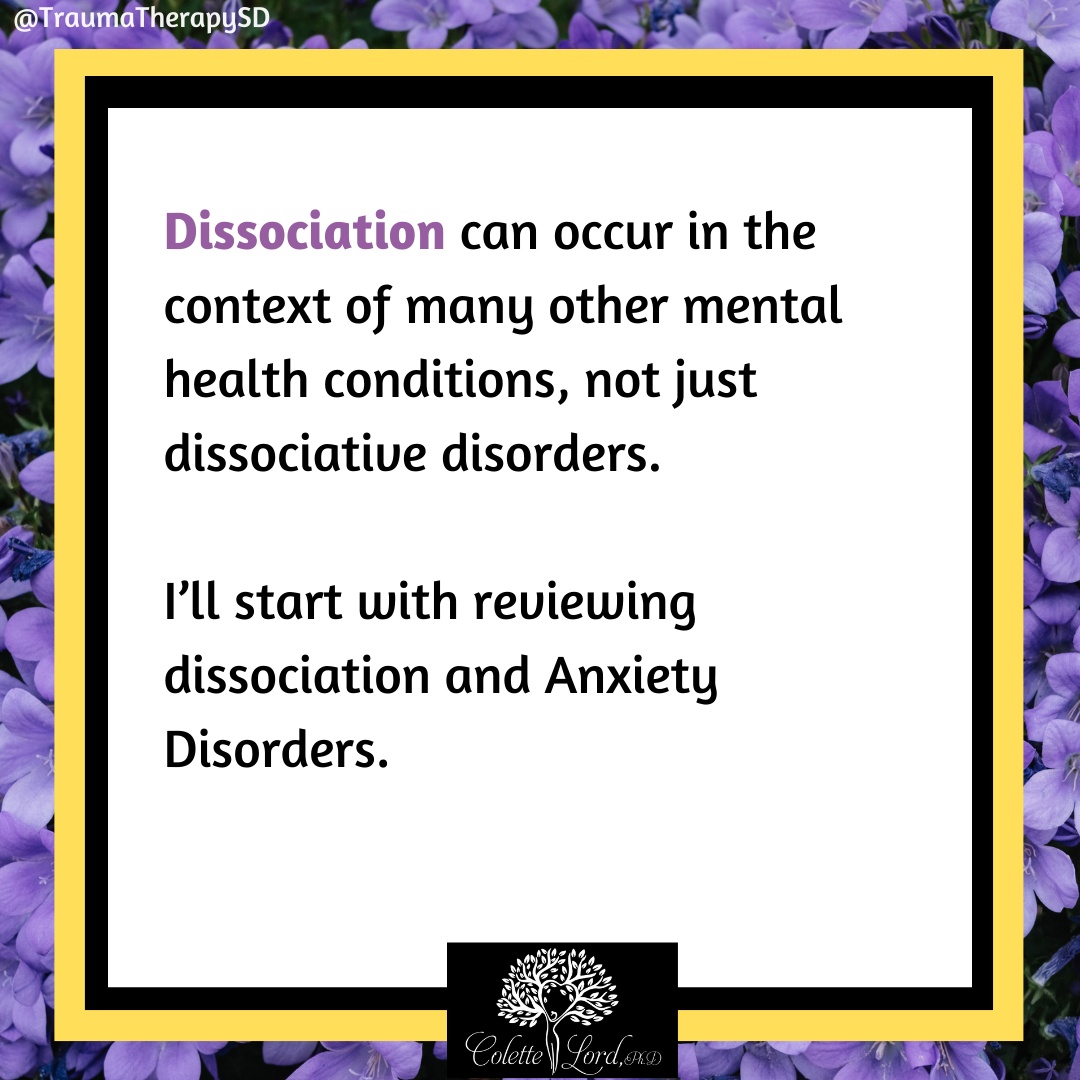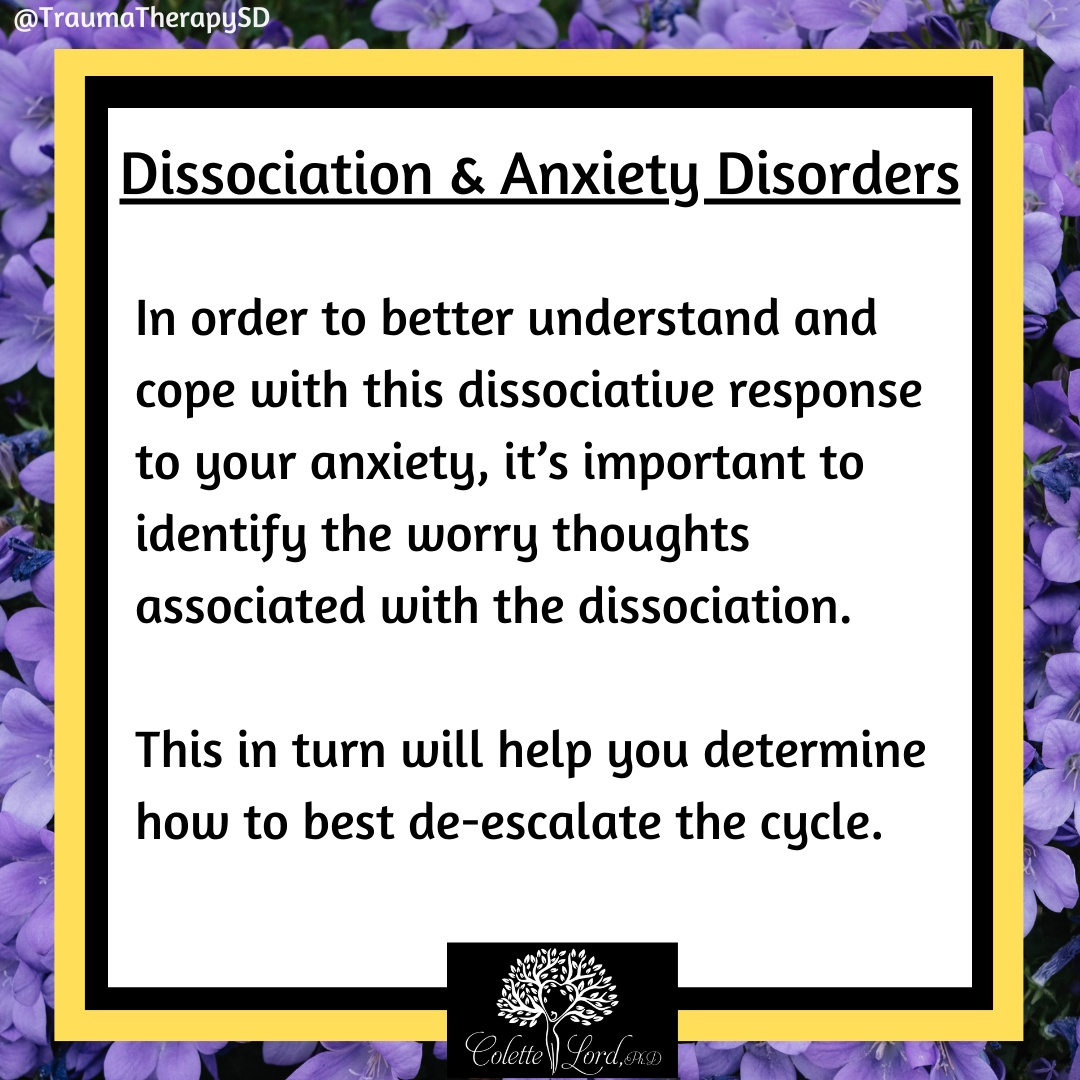Dissociation and Anxiety
Dissociation can occur in the context of many other mental health conditions, not just dissociative disorders.
I’ll start with reviewing dissociation and Anxiety Disorders.
Dissociation can occur in the context of any of the anxiety disorders:
- Generalized Anxiety Disorder
- Panic Disorder
- Obsessive-Compulsive Disorder
- Social Anxiety Disorder
- Specific Phobias
In the context of anxiety, dissociation may occur as a coping mechanism to protect you from the constant stress put on your mind & body by the anxiety disorder.
Most often, this way of coping does not happen at a conscious level.
In order to better understand and cope with this dissociative response to your anxiety, it’s important to identify the worry thoughts associated with the dissociation.
This in turn will help you determine how to best de-escalate the cycle.
In my experience, the worry thoughts are often related to fears that the dissociation means something terrible.
Worries such as you’re going crazy, losing your mind or something is catastrophically wrong with your body.
These worry thoughts escalate the anxiety to the point your brain decides you need a break & dissociates.
Dealing with those worry thoughts to prevent escalation & then using gentle self-talk when the dissociation is happening can both help reduce this cycle.
When experiencing dissociation, practicing grounding skills are extremely helpful.
Grounding skills that help reconnect you to the here and now, and your body are best. But each person is individual so try different ones till you find ones that work for you.
Prevention strategies that will help both your anxiety and the dissociation include getting enough sleep and exercise each day.
Reduce potential triggers by avoiding or reducing use of alcohol, drugs, and caffeine.
In addition, getting treatment for the underlying anxiety disorder is the best course of action for reducing the dissociative experiences.
That way, your brain no longer has a reason to need the protection that dissociation offers.



















